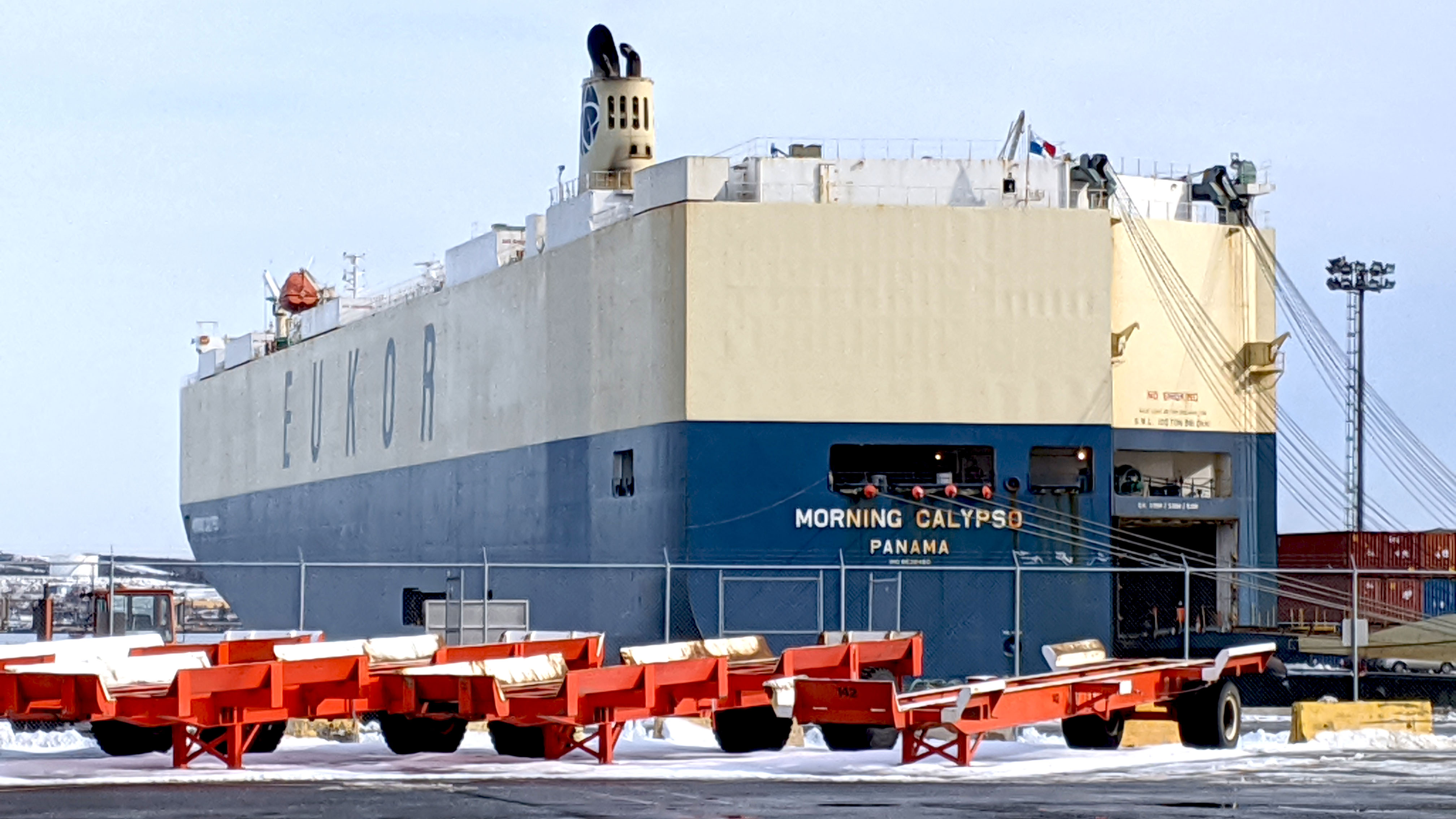Dartmouth company granted $2.94 million for unique vessel monitoring system
CEO says their technology could have prevented some maritime disasters

caption
The vehicle carrier ship called Morning Calypso could be one vessel that is monitored by OCIANA.A Dartmouth-based company has been awarded $2.94 million to develop a product that could be the first global vessel management system of its kind.
Global Spacial Technology Solutions (GSTS) was one of 14 Canadian startup companies to receive federal funding from Sustainable Development Technology Canada, a government body which funds green technology, on Jan. 15.
The company’s project, OCIANA, is based on artificial intelligence and is expected to monitor all ships across the world. It collects and processes vessel tracking data from satellites, along with other factors like weather, port activity, traffic density, and marine mammal activity.
The data will offer decision-making information for a number of maritime-related organizations and clientele. Related stories
The goal is to manage vessels to reduce emissions, protect the environment and marine species, enforce laws, and improve safety.
“The reason that I’m doing this is because it is going to be such a game changer,” GSTS CEO Richard Kolacz said in a phone interview. “It’s interesting technology, it’s a great thing for Canada.”
Kolacz said the idea to create the system was sparked over a decade ago when the U.S. government wanted to be able to track all vessels, all the time, all around the world.
Kolacz said he led a team that designed, built and launched satellites used for the project. The first went up in 2009. By the end of 2018, he said there were more than 100 satellites or satellite systems at their disposal.
He likened the satellites to cell phone towers and OCIANA to cell phones and their apps. The towers, he said, need a purpose.
“To make anything useful out of the data, you need to have a means of processing it. We set up GSTS specifically to process the data using artificial intelligence from multiple satellites now, not just the one,” explained Kolacz.
The company created a consortium with several organizations meant to provide input on the development of their product. Canada Steamship Lines, the National Research Council of Canada and Port of Montreal are some of the organizations taking part.
GSTS analysis estimates that when completed and commercialized, OCIANA could save $15 billion in fuel and 200 million tonnes in CO2 emissions each year.
Beyond that, the system will also use data to notify vessels of nearby marine mammals, like the endangered North Atlantic right whale, so vessels can avoid them. It’s also expected to improve safety and fuel consumption by helping ships maintain their course and to manage ports in a similar way airports do.
Kolacz explained boats can be notified if ports are clogged with arriving ships and allow them to adjust speeds to adapt, saving fuel.
“We have multiple capabilities, we have vessel management, we have air traffic control for ship, and we have risk or threat management. So actually we have solutions for civil, commercial, and defense and security agencies,” he said.
Kolacz said if OCIANA’s capabilities were available decades ago, it could have prevented some major maritime disasters.
“We provide decision-making information to save lives, energy — energy being fuel and emissions — and the environment,” explained Kolacz. “If you think of it, if you had this kind of a system, the Exxon Valdez would not have happened, the Costa Concordia would not have happened.”
OCIANA has a limited capacity at the moment, but is expected to be completed and commercialized in 2023. Kolacz anticipates it being used across the globe.
The 14 Canadian start-up companies receiving federal funding were selected from 600 inquiries for funding that Sustainable Development Technology Canada received in their 2018/2019 fiscal year. There was a total of $46.3 million available for all funding projects.
Thanks @SDTC_TDDC….delighted to be on this ride with you, along with our partners in the OCIANA Consortium!
Forging new pathways to a sustainable future in the maritime sector is going to be challenging…but challenges spark innovation, and innovation changes the world! https://t.co/LiDXdw1uAK
— GSTS (@GSTS_Info) January 23, 2020
In an email, Sustainable Development Technology Canada spokesperson Veena Bhullar said they can’t disclose how they chose the companies, but noted the scope of GSTS’s project stood out.
“GSTS is seeking to be the first company to provide a global maritime risk and vessel management system using satellite [automatic identification system] data and machine learning algorithms, which definitely made them unique.”
About the author
Dayne Patterson
Dayne Patterson is a recent graduate student at the University of King's College. He's reported from all over Canada, including B.C., Alberta,...
